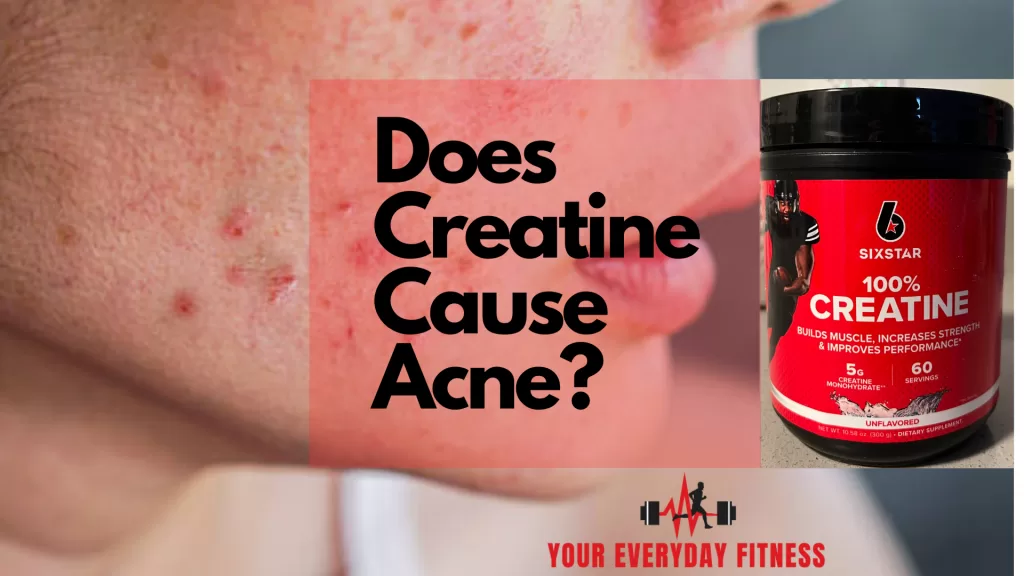Introduction
Supplementation with creatine is one of the most popular choices for enhancing strength, endurance, and performance. Its benefits are well-established, but there’s still some controversy when it comes to whether creatine may promote acne breakouts.
Some gym-goers report more pimples, more pimples after using creatine, which has led to the speculation that creatine leads to increased testosterone, higher hormones, or changes in skin health.
But is this true? Or is creatine unfairly blamed?
In this post, we are going to identify if creatine causes acne directly, what the scientific studies say about creatine and skin health, as well as the possible causes some users break out, and finally, the best ways to prevent acne when on creatine.
What Is Creatine?
Creatine is a compound that occurs naturally in muscle cells. It is involved in the production of adenosine triphosphate (ATP), which gives energy for high-intensity workouts.
Where Do We Get Creatine?
You may be wondering, how is creatine made? Or where do we get it from?
- Food sources — Red meat, fish and poultry contain creatine, but in small quantities.
- Supplements – The most studied and popular form is creatine monohydrate.
How Does Creatine Work?
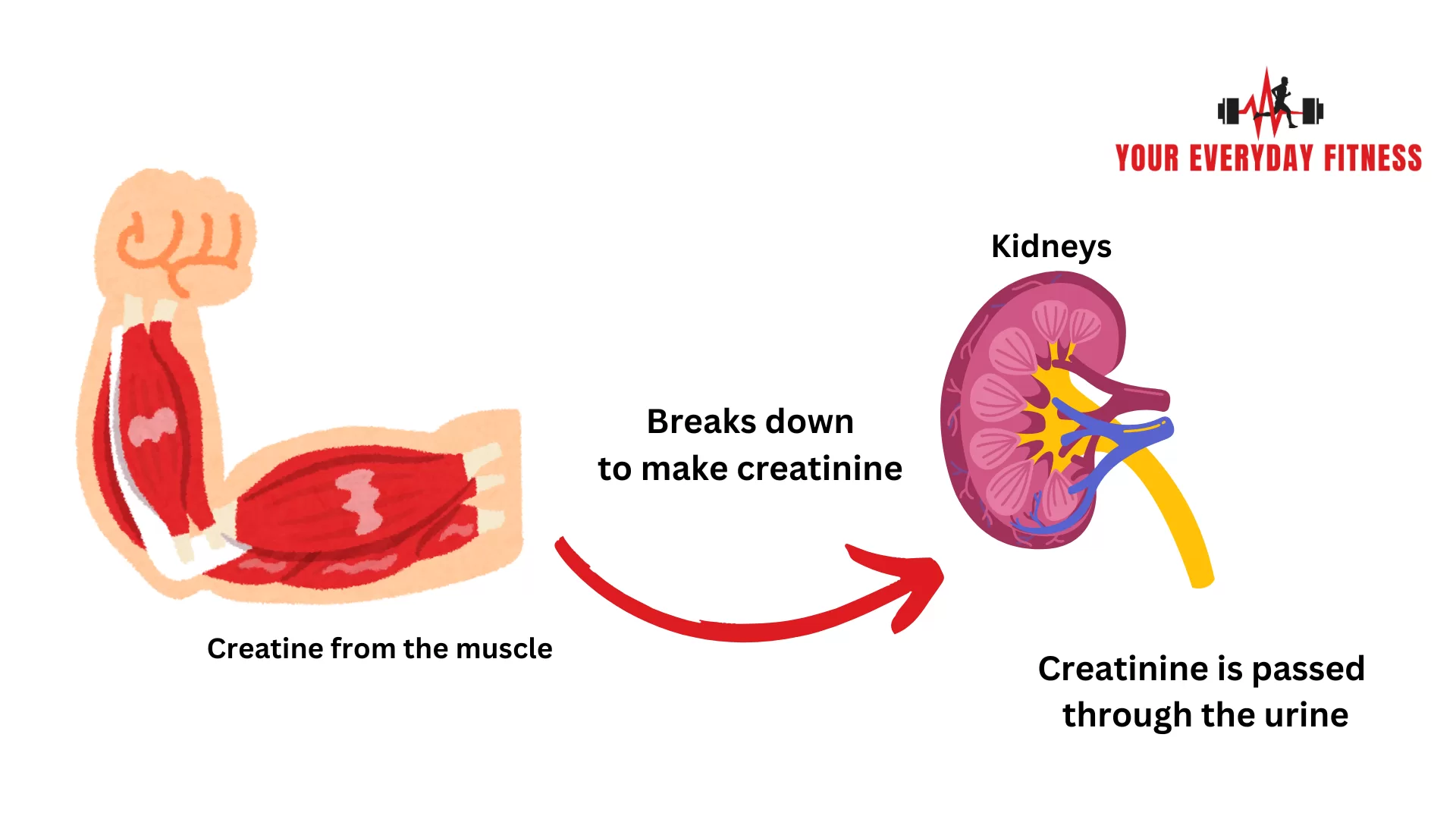
Creatine raises phosphocreatine levels in muscle which contributes to faster ATP regeneration. That means more strength and endurance; improved recovery between sets; better muscle hydration and growth.
But can this increase in performance come with a risk of acne?
Does Creatine Cause Acne? What Science Says
Many people assume that creatine supplementation contributes to acne due to its potential effects on hormones, oil production, and overall skin health. However, there is no direct scientific evidence that creatine causes acne (Kreider et al., 2017).
Creatine does not directly cause acne, but it may indirectly trigger acne in people who are already prone to it. This may be due to changes in hydration, increased sweat and bacteria from workouts, dietary shifts, or interactions with other supplements such as whey protein.
Let’s take a closer look at the available research to see what science has to say about creatine, hormones, and acne.
Creatine and Hormones

Many of the most common arguments for why creatine may lead to acne allude to the fact that it could have an impact on our hormones, especially DHT. Androgens, like DHT, are a testosterone derivative, and one of the effects they have is in sebum (oil) production, which can contribute to acne when in excess.
Van der Merwe et al. (2009) looked at the influence of creatine monohydrate supplementation on testosterone and DHT levels in rugby-playing college-aged men. After three weeks of creatine, DHT levels increased by 56%, while testosterone stayed the same.
This also resulted in an increased DHT-to-testosterone ratio which raised concerns about whether creatine could indirectly elevate sebum production and thus, trigger acne.
But there are some important caveats to this study:
- Small Sample Size – The study included just 20 participants, so it’s hard to generalize.
- Short Duration – The study was conducted over three weeks, which is insufficient time to evaluate long-term hormonal changes.
- No Acne Assessment – The study did not track actual acne development in the participants, only hormonal changes.
Importantly, however, DHT levels were still in the normal physiological range, meaning that although creatine supplementation shifted the ratio of DHT to testosterone towards having more DHT, it was not high enough to put DHT levels into ranges generally seen with hormonal dysregulation or a lot of acne.
Kreider and Stout also conducted a review in 2021 and concluded that creatine does not affect testosterone or DHT significantly to create the widespread acne issue.
Creatine and Oil (Sebum) Production
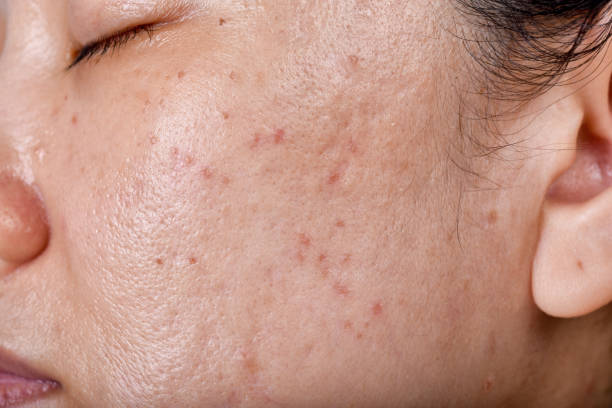
Because DHT is associated with heightened sebum production, there are those who speculate creatine could cause excessive oiliness, which could clog pores and contribute to acne. But there is no direct research showing that creatine raises sebum levels.
Multiple factors influence sebum production, including genetics, diet, stress, hydration levels, and hormonal activity. Even if creatine has some marginal effect on DHT, that is certainly not a sign it will cause you to produce excess oil, or lead to acne in everybody.
Whey Protein vs. Creatine in Acne Development
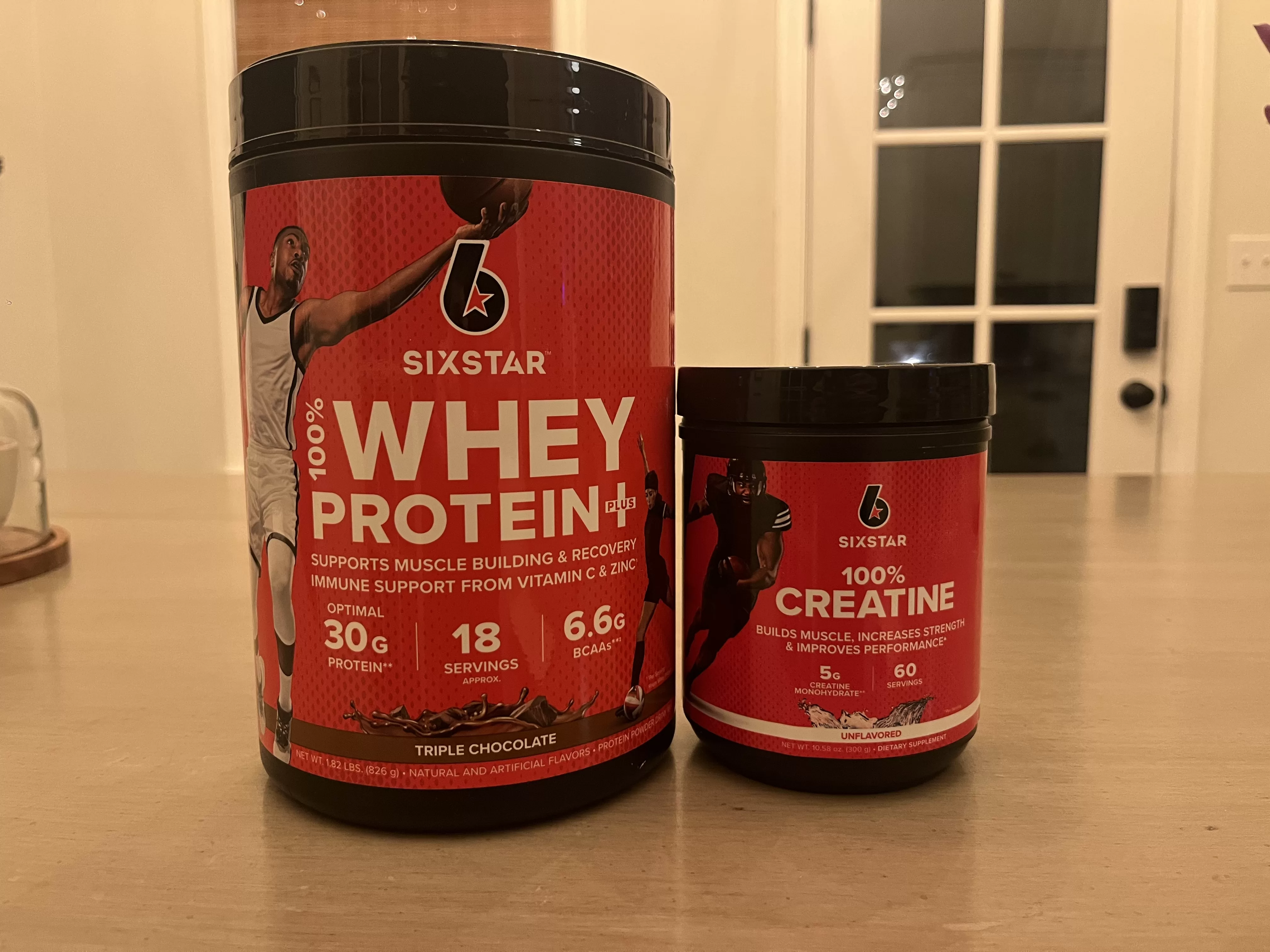
Some people who take creatine also consume whey protein, which has been studied for its potential link to acne.
One Muhaidat et al. (2024) study found that whey protein supplementation was significantly associated with acne vulgaris in adolescent males.
This is because whey protein stimulates insulin and IGF-1, both of which are known to:
- Increase oil production
- Promote skin cell overgrowth, leading to clogged pores
- Trigger inflammation, worsening acne severity
Creatine does not stimulate insulin or IGF-1 in the same way as whey protein, meaning that it does not share the same acne-related risks.
However, many gym-goers combine creatine with whey protein, making it difficult to determine which supplement is responsible for breakouts.
Recap of the Studies
Let’s quick recap those studies for you:
- Creatine does not directly cause acne, and there is no definitive evidence linking it to breakouts.
- A 2009 study showed creatine slightly increased DHT levels, but within normal physiological ranges (van der Merwe et al., 2009).
- DHT plays a role in sebum production, but creatine’s effects on acne remain unproven.
- A 2024 study confirmed that whey protein is a stronger acne trigger due to its effects on insulin and IGF-1 (Muhaidat et al., 2024).
- Many acne-related concerns may be due to hydration levels, sweat buildup, diet changes, and combining creatine with other supplements.
Why Might Some People Experience Acne While Taking Creatine?
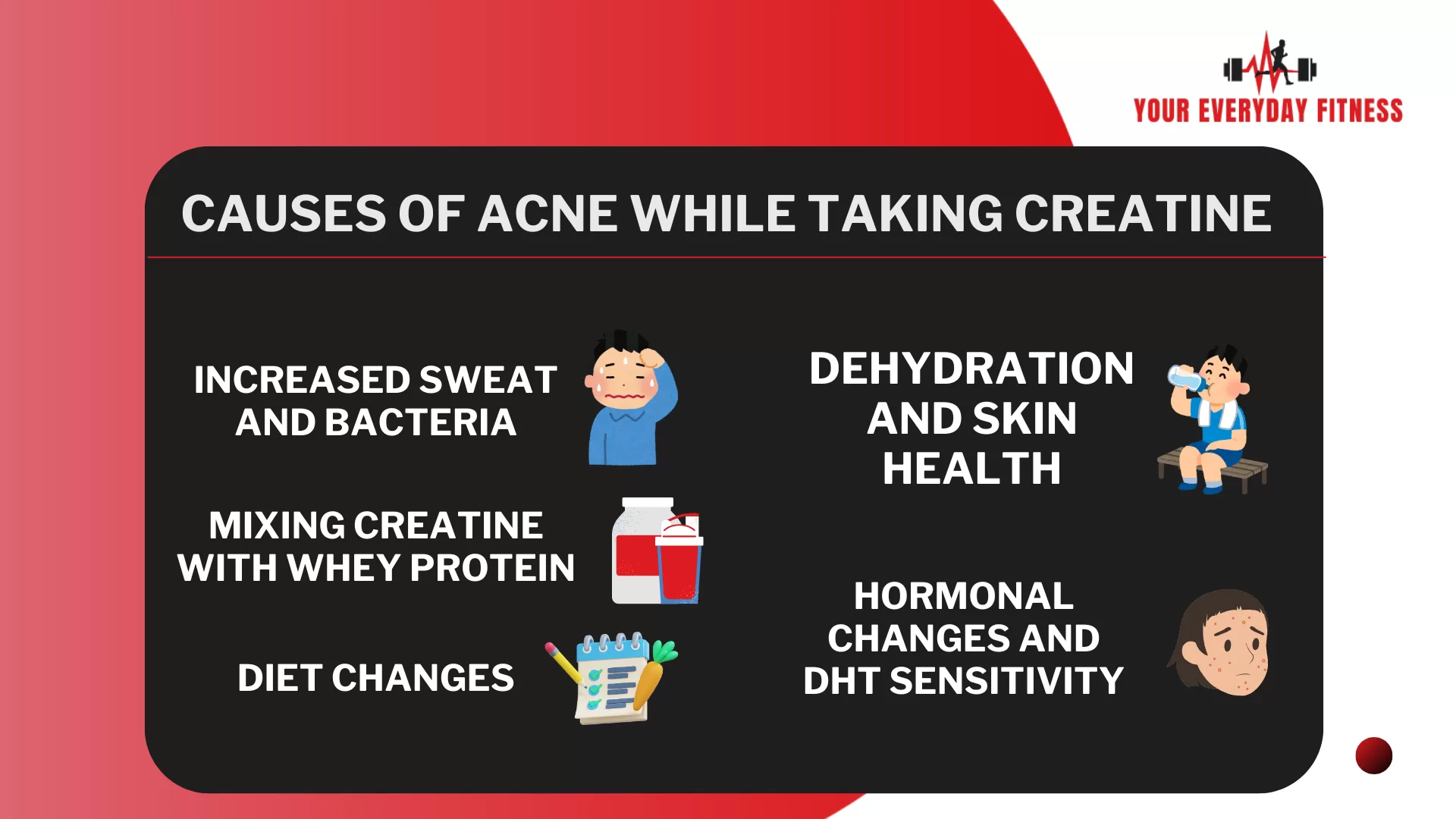
If creatine does not directly cause acne, why do some people report breakouts?
1. Increased Sweat and Bacteria
- Intense workouts lead to more sweating, which can mix with dirt and bacteria, clogging pores.
- Gym equipment harbors bacteria, increasing the risk of acne mechanica (friction-based acne).
Solution: Wash your face after workouts and avoid touching your face at the gym.
2. Mixing Creatine with Whey Protein
- Whey protein is linked to acne due to its effects on insulin and IGF-1 (Muhaidat et al., 2024).
- Many people take creatine with whey, making it hard to determine which supplement is responsible for breakouts.
Solution: If you suspect whey is causing acne, try switching to plant-based protein.
3. Diet Changes (More Calories, More Breakouts)
- Many people increase their calorie intake while using creatine to support muscle growth.
- Diets high in processed foods, dairy, and sugar can trigger breakouts (American Academy of Dermatology Association).
Solution: Focus on whole, nutrient-dense foods and monitor how your skin reacts to diet changes.
4. Dehydration and Skin Health
- Creatine pulls water into muscle cells, which can leave other areas of the body dehydrated, including the skin.
- Dry skin can cause an overproduction of oil, leading to acne.
Solution: Drink at least 2.5-3 liters of water daily to maintain hydration.
5. Hormonal Changes and DHT Sensitivity
- While creatine may slightly increase DHT levels, not everyone is sensitive to DHT.
- Genetics play a major role—if you are prone to hormonal acne, you may be more affected by DHT fluctuations (van der Merwe et al., 2009).
Solution: If you suspect DHT sensitivity, consider skincare products that regulate oil production, such as those containing salicylic acid or niacinamide.
How to Prevent Acne While Taking Creatine
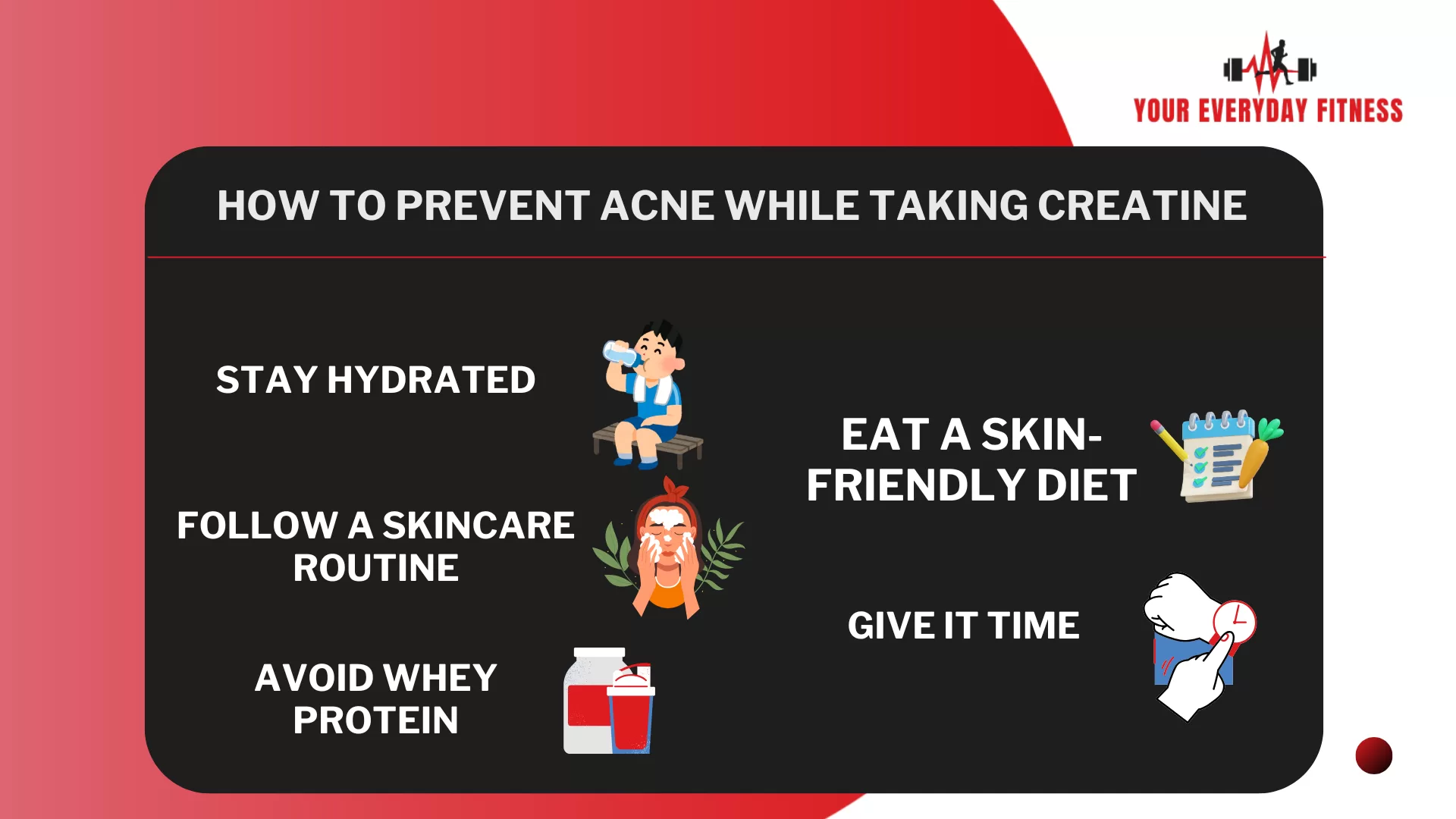
1. Stay Hydrated
Drink at least 8-12 glasses of water per day to prevent dehydration-related oil production.
2. Follow a Skincare Routine
- Wash your face after workouts to remove sweat and bacteria.
- Use non-comedogenic (oil-free) moisturizers and sunscreens.
3. Avoid Whey Protein (If Sensitive)
- If you suspect whey is triggering acne, try plant-based protein instead.
- Monitor your skin when introducing new supplements.
4. Eat a Skin-Friendly Diet
- Reduce intake of high-glycemic foods, dairy, and processed sugars.
- Increase foods rich in zinc, omega-3s, and antioxidants to support skin health.
5. Give It Time
- If you notice acne after starting creatine, your skin may need time to adjust.
- Breakouts are often temporary and may subside after a few weeks.
Conclusion: Does Creatine Cause Acne?
There is no strong scientific evidence that creatine directly causes acne.
Most acne-related concerns stem from indirect factors, and many people who are using creatine are just associating it with the supplement when that is not the case.
For most users, creatine is not an acne trigger. In fact, it has been proven through decades of research that creatine is safe and an effective supplement for performance, and with common sense precautions, it should not have a detrimental effect on the skin.
If you suffer from breakouts, tweak your hydration, diet and skincare routine. These tips should take care of acne. Don’t let the rumors fool you! You can take creatine and have perfectly healthy skin!
Works Cited (MLA Format)
- American Academy of Dermatology Association. “Is your workout causing your acne?” AAD.org, 2023.
- American Academy of Orthopaedic Surgeons. Creatine supplements.
- Kreider, Richard B., and Stout, Jeffrey R. “Creatine in health and disease.” Nutrients, vol. 13, no. 2, 2021, p. 447, doi:10.3390/nu13020447.
- Muhaidat, J., et al. “The Effect of Whey Protein Supplements on Acne Vulgaris among Male Adolescents and Young Adults.” Dermatology Research and Practice, 2024, doi:10.1155/2024/2158229.
van der Merwe, J., et al. “Three weeks of creatine monohydrate supplementation affects dihydrotestosterone to testosterone ratio in college-aged rugby players.” Clinical Journal of Sport Medicine, vol. 19, no. 5, 2009, pp. 399-404, doi:10.1097/JSM.0b013e3181b8b52f.

